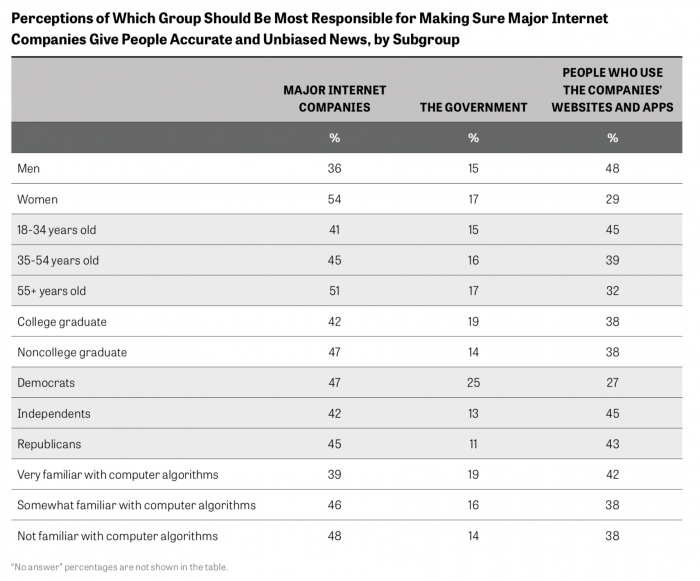But what does your average Mark or Campbell think?
According to a new survey by the Knight Foundation and Gallup, American adults feel negatively about major Internet companies tailoring information to them individually, acting as content arbitrators that enhances bias, and not being transparent about their methods. (Note: Knight has provided support to Nieman Lab in the past.) Those major internet companies in this context are Google, Yahoo, Facebook, and Twitter (surprise).
Of the 1,203 U.S. adults interviewed earlier this summer, most got their news from Google (53 percent daily/a few times a week) or Facebook (51 percent), with only 23 percent coming from Yahoo and 19 percent from Twitter. The survey’s authors kindly broke out the percentages we’ll highlight here by familiarity with algorithms, generation, and education level.
54 percent said internet content curated by the companies’ algorithms is a bad idea (including 16 percent who felt it is a “very bad” idea), while 45 percent thought it was good. But that’s mostly split along generational lines, with the young folk in favor and the Boomers against.
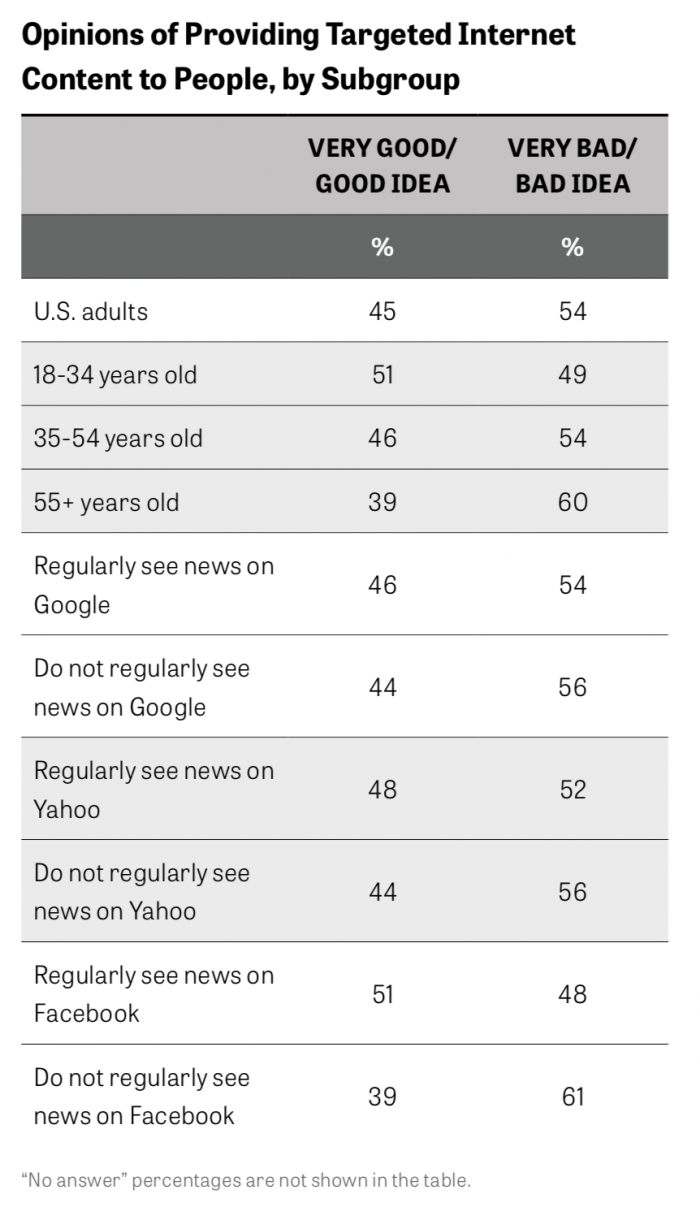
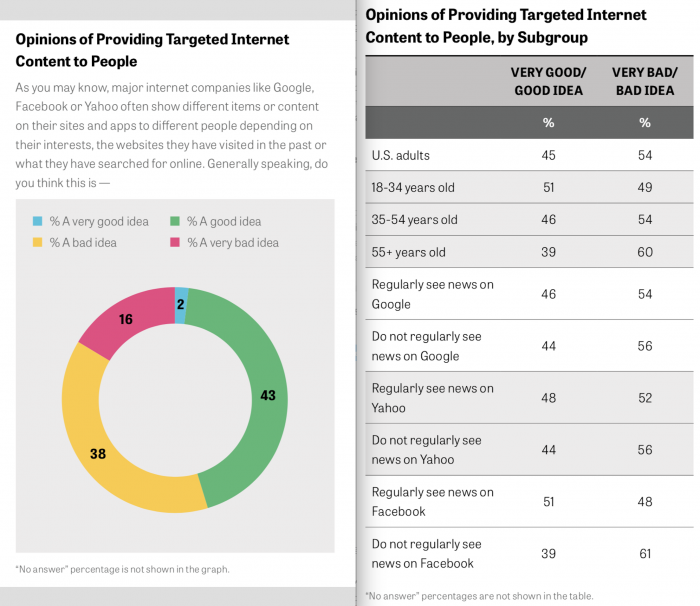
Only 15 percent of respondents feel that the major internet companies are doing enough to stem the spread of misinformation, with 48 percent strongly feeling they aren’t. Through the political party lens, 19 percent of Democrats, 15 percent of independents, and 10 percent of Republicans feel the companies are doing enough against misinformation.
A whopping 80 percent of those surveyed were in favor of excluding a news item from a news feed or results page if it contains misinformation, but they’re not necessarily asking for individually-flagged posts to solve the problem (65 percent are against excluding a news item if users have complained about it). They say these opinions are based out of concern for giving people a biased picture of the news, elevating the company’s preferred points of view, constraining certain points of view, and increasing the influence of certain news organizations over their competitors. Republicans feel mostly strong about all this.
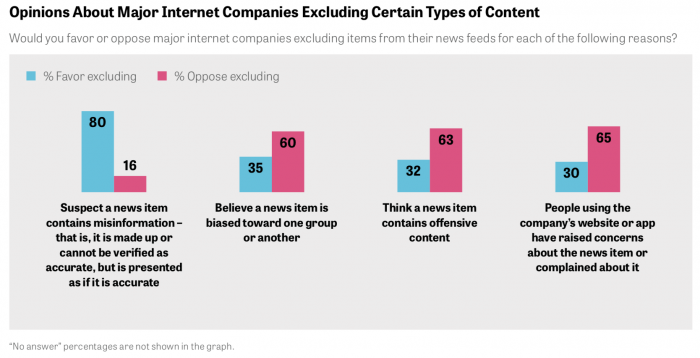
The report pointed out that a majority of respondents do not think that the displaying of certain news items is an endorsement by those companies of the accuracy of the information — but still, 43 percent do think so.
And 60 percent said they are usually aware of the news organization behind the link surfaced on Google/ Facebook/Yahoo/Twitter, with younger and/or college-educated respondents tending to be more aware than their opposites.
These charts speak for themselves:

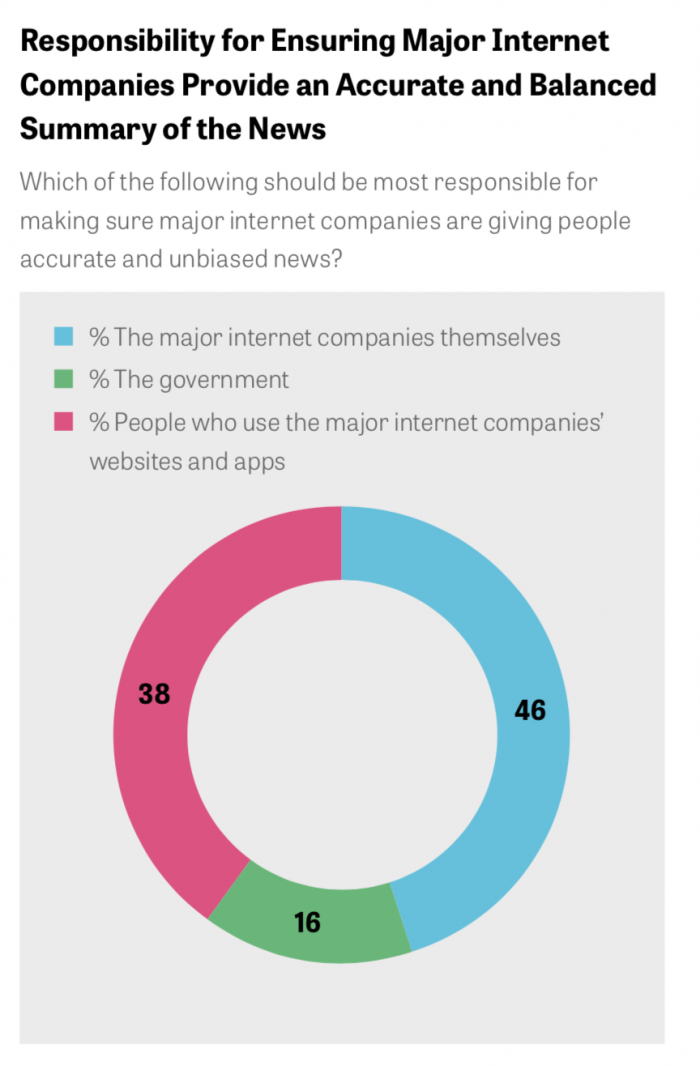
But there’s also an interesting gender breakdown around the latter. Women think the companies should be held accountable, whereas men feel it’s the users’ responsibility to ensure Americans get an accurate and unbiased view of the news.
